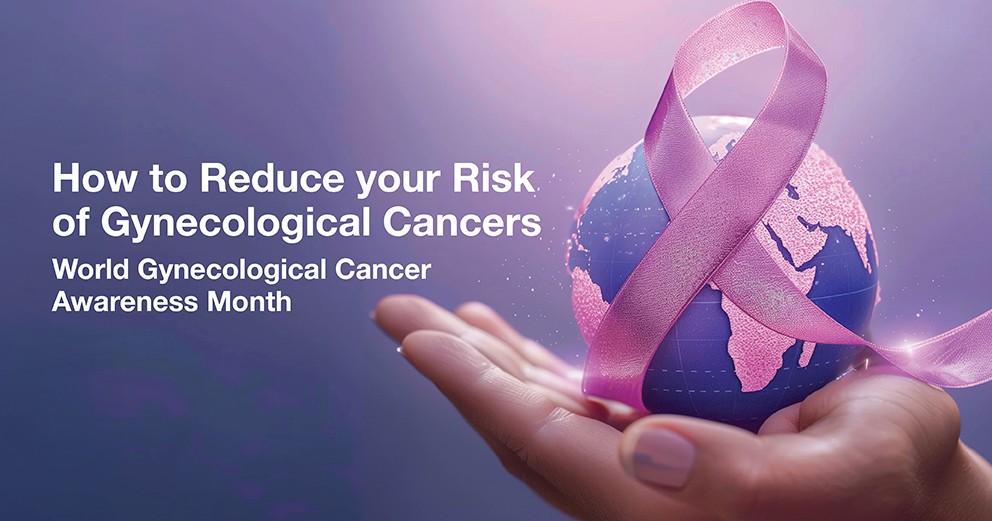World Gynaecological Cancer Awareness Month - Go against stigma.
What are Gynecological Cancers and Types of Cancers?
Gynecologic cancer starts in a woman’s reproductive organs. There are 5 types of gynecologic cancers that occur in women:
- cervical
- ovarian
- uterine
- vaginal
- and vulvar with cervix.
Uterine and ovarian cancers are the most common.
World Gynecologic Oncology (GO) Day
Though exact 2025 data is emerging, projections show breast, ovary, and cervical cancers are the top cancers in women, with gynecological cancers constituting 50% of India’s cancer burden. Every year, 20th September is celebrated as World Gynaecological Oncology Day, marking the beginning of World Gynaecological Cancer Awareness Month.
World Gynecologic Oncology (GO) Day is an annual awareness day dedicated to raising public awareness of gynecological cancers, highlighting the risk factors, symptoms, early detection, and prevention strategies that impact women.
How did it start?
The European Society of Gynaecological Oncology (ESGO) and the European Network of Gynaecological Cancer Advocacy Groups initiated the global campaign in 2020. With the 7th World GO Day celebrated this year on September 20th, various patient advocacy groups, physicians, caregivers, and other scientific organizations come together on this day to raise awareness about the symptoms, screening, prevention, and to combat the stigma associated with these cancers.
Early diagnosis of gynecological cancer remains the best chance of successful treatment.
It remains vitally important that women liaise with their health care providers if they have any concerns about their reproductive health. In fact, gynecological cancers like cervical cancer are preventable with a possible cure in early-stage cervical cancer with HPV vaccination and regular screenings and examinations.
However, cervical cancer remains the 2nd most common cancer in women, with the 3rd most common cause of death due to cancer in India.
More than half of the cervical cancer cases were diagnosed in advanced stages. Almost all cervical cancers arise due to persistent infection with HPV (Human papillomavirus), a common sexually transmitted infection.
Along with cervical cancer HPV can cause other tumours like genital warts, anal cancers, penile cancers, vulval and vaginal cancers along with some of the oral cavity cancers and can be prevented by HPV vaccination.
Although the HPV vaccine was first approved in INDIA in 2008, with 9–14-year-old girls as the primary target, the cost became a huge barrier to this vaccination. Indigenous HPV vaccine CERVAVAC developed by Serum Institute of INDIA was approved in 2023 significantly lowering the costs of the vaccine and was approved for girls and boys of age 9-26 Years.
Aim to eliminate Cervical Cancer:
The vaccine rollout, supported by a Union Budget allocation, was phased through schools and health centers with the plan to incorporate it in the national immunization schedule soon to reach WHO goals of eliminating cervical cancer by 2030:
- by vaccinating 90% of girls (age 15)
- screening 70% of women (age 35 to 45)
- and treating 90% of detected cases
Vaccines are not 100% protective against cervical cancer and are not a replacement for periodic screening. Screening must be continued for early detection and treatment, and cervical cancer screening has been incorporated into the national screening programme.
However, the reach of HPV vaccination and screening is critically low in INDIA with less than 1% of girls vaccinated and less than 2% of women screened for cervical cancer as of 2024 data from the Indian Association of Preventive and Social Medicine (IAPSM).
Significant barriers, including lack of awareness even among educated women with social and cultural factors, cost, fear of side effects, perceived lack of need, and questions of vaccine efficacy along with stigma associated with HPV, hinder widespread uptake, despite the potential for the vaccine and screening to prevent and cure HPV-related cancers and reach WHO goals of eradicating cervical cancer.
Go Against Stigma
Stigma is the most significant hindrance to gynecological cancer screening, vaccination, and early diagnosis. This year, World GO Day theme is “ go against stigma “ with this being the second year to address this issue, highlighting the severity of this issue.
Stigma related to reproductive health often arises from societal and cultural factors, such as misogyny and ageism, as well as taboos surrounding discussions of reproductive organs. This stigma can be especially pronounced for patients with uterine, endometrial, cervical, ovarian, vaginal, or vulvar cancer, making their experience more challenging. Addressing this stigma is essential for better support and open dialogue about reproductive health.
World GO day this year is focused on the stigma faced by women with stressing the importance of going against all the taboos and stigmas by educating and empowering women including young girls to reach out and discuss with their doctors about their reproductive health by stressing that there is no shame in asking the doctor.

